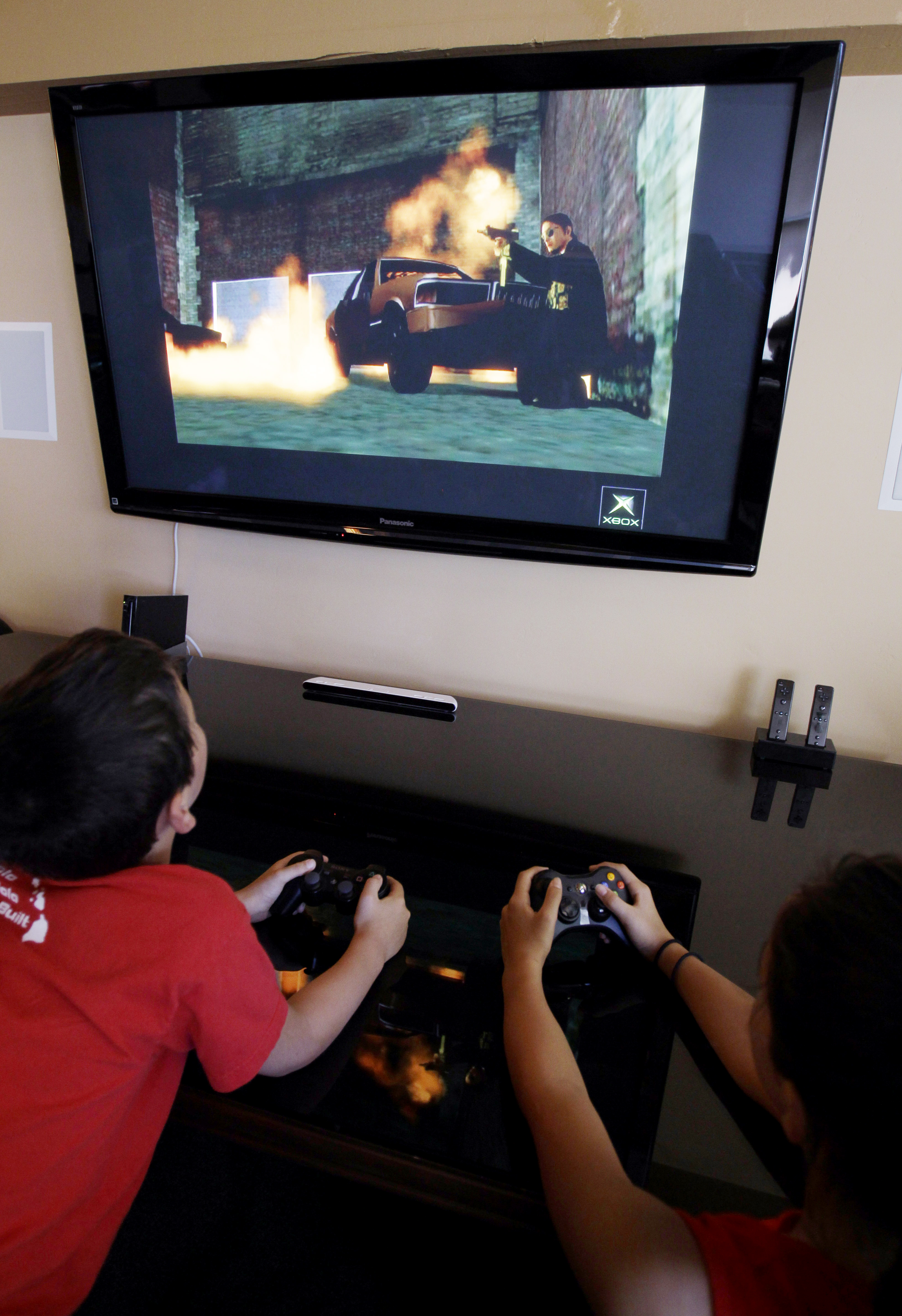TURN OFF THE TUBEThe U.S. Centers for Disease Control and Prevention recommends limiting all "screen time" -- video games, Internet, TV -- to no more than two hours a day.
UNHEALTHY TEENSOverweight or obeseHamilton County: 27 percentU.S.: 28 percentNot enrolled in a P.E. classHamilton County: 58 percentU.S.: 44 percentDaily soft drinkHamilton County: 35 percentU.S.: 29 percent
Thirty-five percent of Hamilton County high school students spend at least five hours a day watching television, playing video games and scouring the Internet, according to new survey results.
But the Chattanooga-Hamilton County Health Department doesn't know how long those kids stare at their iPhones and BlackBerrys. Cellphone activity wasn't explored in the health department's 2011 Youth Risk Behavior Survey.
Even without figures on cellphone usage, one thing is clear, officials said.
"In some children, their most physical activity is indeed with their thumbs," Chattanooga-Hamilton County Medical Society Executive Director Rae Bond said.
Officials on Tuesday shared the survey's health and wellness results, which showed that many students aren't so healthy and well.
Based on self-reported height and weight responses, 27 percent of Hamilton County students are overweight or obese. Three in four students aren't hitting the U.S. Centers for Disease and Prevention's recommended daily benchmarks for exercise -- 60 minutes of physical activity -- or nutrition -- five servings of fruits and vegetables.
Nearly 20 percent of students said they hadn't exercised in the seven days before they took the survey, and 18 percent drink three or more "sugar-sweetened soft drinks" every day.
"This is a Coca-Cola town," said Ione Farrar, community health planner for the health department.
About 3,500 students from 19 public and six private high schools took the survey. Twenty-two of the questions dealt with body weight, dietary behaviors and physical activity.
When Tuesday's news conference ambled into talk of solutions, familiar suggestions emerged -- increased physical education in schools, healthier cafeteria lunches and positive guidance from parents.
But more P.E. is a nonstarter, according to Russell Cliche of Hamilton County's Coordinated School Health Division. To keep from getting on the bad side of federal education laws, schools must devote their limited resources to improving test scores, not additional physical education classes, he said.
"Physical education is not tested," he said.
Hamilton County high school students are required to take one semester of physical education. In lieu of more classes, Cliche said, the school system is encouraging "more movement" in classroom learning and pushing "less and less educators to use food as a reward" for students.
Health department officials asked several teenagers from the Chattanooga School for the Arts and Sciences to speak at Tuesday's news conference. One suggested replacing a McDonald's meal with a homemade sandwich as often as possible. Another encouraged his peers to take the stairs, not the elevator.
"You don't have to kill yourself trying to be healthy," said Lee Stanfield, a CSAS student. "It's OK to do everything in moderation. You don't have to fast; you don't have to purge."
About 10 percent of students have fasted 24 hours to lose or maintain weight, according to the survey results.
The health department plans a future release on behaviors that contribute to "unintentional injuries and violence," officials said.

